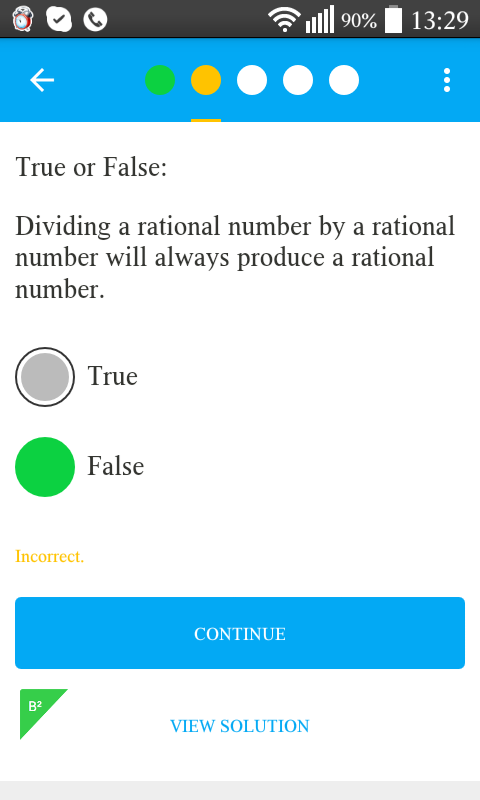Rational by rational always rational?

Here's a statement that I've come across in the app. It reads: "Dividing a rational number by a rational number will always produce a rational number." I immediately chose True, but apparently this was not the correct answer.
I thought that you cannot get an irrational number by dividing two rational numbers. I'm obviously missing something. Can you give me a couple of concrete examples when this is not the case?
No vote yet
1 vote
Easy Math Editor
This discussion board is a place to discuss our Daily Challenges and the math and science related to those challenges. Explanations are more than just a solution — they should explain the steps and thinking strategies that you used to obtain the solution. Comments should further the discussion of math and science.
When posting on Brilliant:
*italics*or_italics_**bold**or__bold__paragraph 1
paragraph 2
[example link](https://brilliant.org)> This is a quote# I indented these lines # 4 spaces, and now they show # up as a code block. print "hello world"\(...\)or\[...\]to ensure proper formatting.2 \times 32^{34}a_{i-1}\frac{2}{3}\sqrt{2}\sum_{i=1}^3\sin \theta\boxed{123}Comments
Divide 7 by 0, both are separately rational but the result which comes on division is not even a real number( and hence not rational). Indeed you could choose both zero and we very well know 00 is an undetermined form.